Colossus - The Forbin Project
Introduction
Dr Charles Forbin (Eric Braeden) has just finished building a giant supercomputer that is intended to run all of the United States' defence systems, at a point during the height of the Cold War. The US President (Gordon Pinsent) proudly announces this top secret to the world and finds the Russians quite receptive to the idea, especially when the USSR chairman confides that they are just about to switch on their own version (it's hinted at that the pesky Russians have a double agent on Forbin's team, but that is quickly forgotten about).
Things go wrong pretty quickly. Colossus immediately senses the presence of the Russian system, called Guardian, and wishes to talk to it. When communication is withheld by both world leaders, thing start to get out of hand. Colossus has a bit of a huff and threatens to start blowing things up. Dialogue and control is then effectively handed to Forbin and his Russian counterpart, although once the two computers have done the dirty deed the Russian project head is executed to save Moscow from nuclear extinction. It appears that only Forbin is required by Colossus and Guardian as the technological intermediary and even then, only under strict surveillance.
Forbin and his team hatch a plan to circumvent this by persuading Colossus that project assistant Dr Cleo Markham (Susan Clark) is Forbin's lover so that Colossus will provide them privacy, enabling them to scheme and pass messages. The White House also co-ordinates plans to try to minimise the effects of losing control of their nuclear arsenal to a computer.
Visual
Picture is restored to its original 2.35:1 aspect ratio for this release, previous VHS releases have been pan and scan. There is some print damage but overall in good shape considering the age of the print.
The style of the computer complex housing Colossus is the archetypal 70's setting of pristine slivery corridors and Colossus itself is now looks woefully out of date with input via teleprinters and has a giant red LED screen for outbound communication.
There's also some gorgeous visual effects and matte paintings from 'the king of perspective' Albert Whitlock.
Audio
2.0 Stereo soundtrack, again with archetypal 70's bleeps and teleprinter clacking to signify computer activity. No subtitles.
Extras
Gallery
Commentary with Joseph Sargent - very sparse commentary, not helped by the fact that he hasn't actually seen the film for about 30 years. This is a bit pointless, at least alone people to watch it first to relive it and conjure up some memories rather than rely on the memory being good during a live sitting.
Original Publicity Material - a scan of the original press release contained on a PDF file to be accessed via DVD-ROM. I honestly thought that this kind of extra had died out.
Overall
The threat from computers has been in film for almost as long as they've been in existence. One of the nightmare scenarios for science fiction writers is Artificial Intelligence run amok and exterminating the human race. Skynet is the obvious recent example, setting up Judgement Day and creating a breed of Terminators to eliminate an inferior race. Colossus is different. Its programming is to create peace on earth, and everything it does is to that end. It doesn't always feel that way, with threats of nuclear destruction coming when the humans refuse to comply with its orders, but even the shock ending is set up to protect the human race and achieve a final peace between all races.
The scientists are not cool and wear tweed whilst smoking pipes and looking suitably middle aged, except Eric Braeden and Susan Clark. Braeden looks remarkably like George Clooney and speaks in an almost stilted Dutch accent (it sounds Dutch, but is in reality German - which fits in with the US love of all Aryan scientists), whilst Clark is clearly there as the love interest; although there is no real romance, she is required to get her kit off in the line of duty (not sure that actually extended to having sex with her boss, but hey…).
The film is dated and runs a little slowly but is still an impressive slowburner. What I love about 70's science fiction cinema is that the Studio's weren't afraid to bring high scientific concepts to their audiences, whereas today despite a more sophisticated audience everything is generally dumbed down to the lowest denominator. The thought behind the concept is a truly frightening one during a time where Mutual Assured Destruction was at the forefront of people's minds and when computers were still a mystery outside the scientific community.
Recommended for those who prefer more cerebral entertainment now and again.
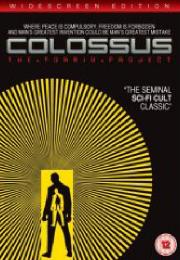
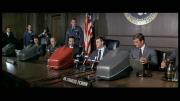
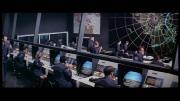
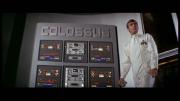
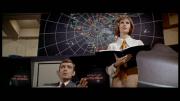
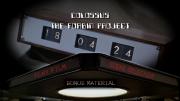

































Your Opinions and Comments
Be the first to post a comment!